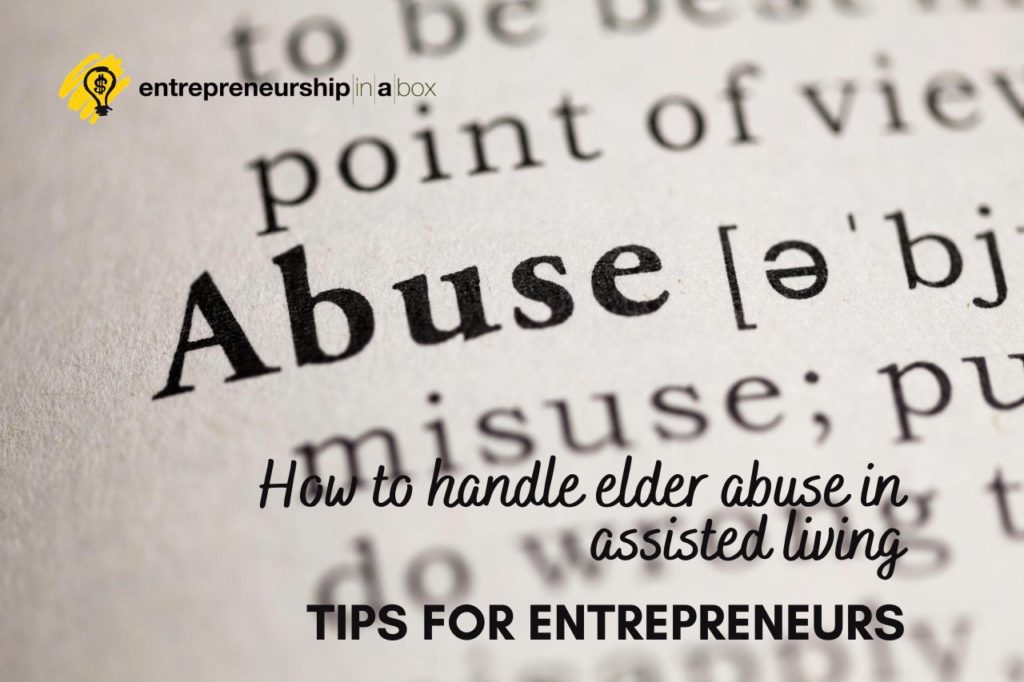As an entrepreneur, juggling between business and family can be a hassle. That’s why you might have delegated elder care to an assisted living facility. Sadly, cases of physical, psychological harm, and neglect among older adults are now shockingly common in assisted living facilities. Well, two in every three assisted living staff have reported committing an abuse. Scary, right?
It is heartbreaking to find out that what was meant to be a safe haven for your loved one is not. Recognizing elder abuse requires a lot of observation and communication with older adults. Remember to prevent or stop abuse; you will need first to observe and recognize it. Here is a quick guide that covers more about ways to detect elder abuse and how to go about it.
How to spot elder abuse; forms of elder abuse
To detect a violation, you will need to familiarize yourself with the different forms of abuse to expect. Remember, abuse can be physical, emotional, or behavioral. Now let’s break it down:
Physical abuse
Physical abuse among the elderly in assisted living is becoming quite common. This form of abuse can lead to death in assisted living facility, and you should be wary of that. Studies found that victims of elder abuse are twice more likely to die prematurely than those who are not victims of elder abuse. Even minor injuries from physical abuse cause serious and permanent damages or even death. Form of physical abuse include;
- Bruises, welts, and cuts
- Broken arms and burns
- Bruises or injuries on the thighs or genitals(sexual)
- Bleeding pain and irritation in the genitals. (sexual)
Emotional abuse
Emotional abuse is often the most difficult to identify. While they may not leave physical scars, they can be just as damaging to an older person’s health. An easy way of detecting emotional abuse is when you realize that your loved one mood decreases abruptly and in a concerning way. Some signs include:
- Isolating or withdrawing from people
- The older person gets agitated or fearful in the presence of someone usually the perpetrator
- Avoids eye contact and has low self-esteem
- Changes in eating and sleeping patterns
- He/she engages in self-injury behaviors.
Neglect
Neglect is the refusal to provide a dependent senior with the basic necessities that foster his/her wellbeing. Negligence can be instigated or self. Some of the signs of neglect include poor basic hygiene, inadequate food, and water, unsafe and dirty living conditions, being left alone unsupervised and unattended, inadequate supply of medical aids, bedsores, etc.
Takeaway:
Neglect, especially self, is often associated with deteriorating mental health when it’s not the case. You will need to be extra vigilant to ascertain this form of abuse.
Financial abuse
You can recognize financial abuse when you realize illegal or improper use of funds or other resources from your loved one. Signs of financial abuse include;
- Large bank withdrawals or unexplained transactions
- The sudden need to buy excessive gifts to a caregiver(s)
- An older adult suddenly changing his will
- Missing belongings or property
What to do if you suspect elder abuse
After ascertaining abuse, there are steps you can take to prevent it. However, before you begin, you will need to stay calm in order to provide better help. First, you will need to assess the severity of the injuries or elder abuse; call 911 if your loved one is in a life-threatening emergency.
Ensure they receive treatment, then talk to attorneys helping the elderly to assist in seeking legal recourse. Don’t forget to remove your loved one from that facility.
Wrap up
You should know an injury or fatality in assisted living facilities can occur. You should always strive to protect your loved one amidst the growth of assisted living fatalities, even as you strive to grow your business. Always be on the lookout for signs in elder abuse and take steps to protect your loved one. You can also speak to attorneys helping the elderly in cases of abuse.





